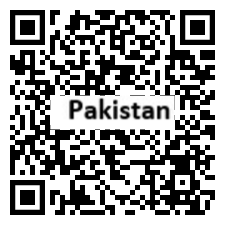Travel Facts
US State Dept Travel Advisory
The US Department of State currently recommends US citizens Reconsider Travel to Pakistan due to terrorism and sectarian violence. Some areas have increased risk. Consult its website via the link below for updates to travel advisories and statements on safety, security, local laws, and special circumstances in this country.
https://travel.state.gov/content/travel/en/traveladvisories/traveladvisories.html
Passport/Visa Requirements
US citizens should make sure their passport will not expire for at least 6 months after they enter the country even if they do not intend to stay that long. They should also make sure they have at least 2 blank pages in their passport for any entry stamp and or visa that will be required. A visa is required. US citizens will need to get in touch with the country’s embassy or nearest consulate to obtain a visa prior to visiting the country.
US Embassy/Consulate
[92] (51) 201-5000/ [92] (51) 201-4000; US Embassy in Islamabad, Diplomatic Enclave, Ramna 5, Islamabad, Pakistan; ACSIslamabad@state.gov; https://pk.usembassy.gov/
Telephone Code
92
Local Emergency Phone
15
Vaccinations
An International Certificate of Vaccination for yellow fever is required for travelers arriving from countries with a risk of yellow fever transmission and for travelers having transited through the airport of a country with risk of yellow fever transmission. Polio vaccination within one year before travel may be required to exit Pakistan. See WHO recommendations. Note: Pakistan is one of two countries with endemic wild polio virus and considered high risk for international spread of the disease. Before any international travel, anyone unvaccinated, incompletely vaccinated, or with an unknown polio vaccination status should complete the routine polio vaccine series; in addition, before travel to any high-risk destination, Centers for Disease Control and Prevention (CDC) recommends that adults who previously completed the full, routine polio vaccine series receive a single, lifetime booster dose of polio vaccine.
http://www.who.int/
Climate
Mostly hot, dry desert; temperate in northwest; arctic in north
Currency (Code)
Pakistani rupees (PKR)
Electricity/Voltage/Plug Type(s)
230 V / 50 Hz / plug types(s): C, D

Major Languages
Punjabi, Sindhi, Pashto, Urdu, Balochi, Hindko, English
Major Religions
Muslim (official) 96.5% (Sunni 85-90%, Shia 10-15%), other (includes Christian and Hindu) 3.5%
Time Difference
UTC+5 (10 hours ahead of Washington, DC, during Standard Time)
Potable Water
Opt for bottled water
International Driving Permit
Suggested
Road Driving Side
Left
Tourist Destinations
Islamabad (includes Pakistan Monument Museum, Faisal Mosque); Naltar Valley & Lakes; Neelum Valley; Skardu; Gojal Valley; Deosai National Park; Lahore (includes Badshahi Mosque, Lahore Fort, Shalimar Gardens); Hunza Valley (includes Baltit Fort); Mohenjo daro
Major Sports
Cricket, field hockey, squash, soccer, polo
Cultural Practices
Pakistani culture is very hierarchical, with age being one of the most important aspects, if not the most important. When interacting with Pakistanis, greet and show deference to the eldest person. It is impolite to start eating before the eldest member at the table has begun to eat.
Tipping Guidelines
Tipping about 30-50 rupees at local restaurants is greatly appreciated. It is best to tip hotel staff directly or leave small change on the table of your hotel room. Taxis do not usually expect a tip.
Souvenirs
Shawls, carpets, onyx and other gemstones and jewelry, inlaid wood furniture and crafts
Traditional Cuisine
Chicken Biryani — a rice dish layered with curried chicken, herbs, biryani spices (including curry, turmeric, allspice, and cardamom), and sometimes potatoes or eggs
Please visit the following links to find further information about your desired destination.
World Health Organization (WHO) - To learn what vaccines and health precautions to take while visiting your destination.
US State Dept Travel Information - Overall information about foreign travel for US citizens.
To obtain an international driving permit (IDP). Only two organizations in the US issue IDPs:
American Automobile Association (AAA) and American Automobile Touring Alliance (AATA)
How to get help in an emergency?
Contact the nearest US embassy or consulate, or call one of these numbers:
from the US or Canada - 1-888-407-4747 or from Overseas - +1 202-501-4444
Page last updated: Wednesday, October 19, 2022
